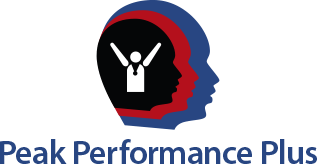Case Management
Getting the Right Care at the Right Time and Place brings about the Right Outcome!
Peak Performance Plus LLC offers Case Management Services nationwide. Case Managers are patient advocates who help beneficiaries and their families navigate through complex and catastrophic health care issues. Case Managers are the essential link between the health plan and individual’s needs.
Miriam Sterk, LCSW C-ASWCM has over forty years of professional experience helping thousands of people. Miriam is the Immediate Past Chairperson of the NASW (National Association for Social Workers) Competency and Credentialing Commission. Miriam Sterk has helped set the standards for Case Management nationwide.
Miriam offers a unique service of Health Care Advocacy and Case Management services that are designed to assist individuals and their families with obtaining quality medical and behavioral health care at affordable rates while improving the outcomes of the their care and the quality of their lives. This service also assists facilities and providers to obtain easy access to credentialing, appeals of denials of claims and the grievance processes that are different for each insurance company.
Miriam has helped thousands of people get satisfaction when their medical insurances denied their claims. She successfully formulated appeals, as she truly comprehends the medical insurances grievance and appeals process.
- Enrollment/Re-enrollment
- Grievance/Appeal
- Request for a Waiver of Benefit
- Coordination of Long Term Care Insurance and secondary insurance benefits with local community resources facilitating a seamless transition from hospital to rehabilitation center and home care.
- Older Adult Program which includes:
- Safety/Risk/Memory Care Assessment for All Levels of Living
- Individualized Care Plans
- Support Groups for Residents
- Consultation on Program Development for Owners/Program Directors on All Levels of Living
- Individual and Family Counseling
- Hypnosis for Wellness, Pain Management and Insomnia
- Caregiver Training and Support Groups
- Training and Education for Case Managers on Transitions of Care and Legal Matters
What is Case Management/Patient Centered & Coordinated Care?
Case Managers are the essential link between the patient, healthcare providers and the payer system!Case Management is an area of specialty practice within nursing, social work and other human service professions. The professional Case Manager works to ensure that the care provided is safe, effective, client-centered, timely and efficient. The Case Manager can enhance navigation and delivery of healthcare services and resources by maintaining the client’s privacy, confidentiality, health and safety through patient advocacy.
Case Management is a collaborative process that assesses, plans, implements, coordinates, monitors, evaluates options and services to meet the client’s health and human services needs. It is characterized by patient advocacy, communication and resource management and promotes quality of care and cost effective care to improve the outcome for healthcare consumers.
What is the Triple AIM?
Reducing readmissions to Acute Care facilities, the highest level of care with the highest cost, is the goal of the US Department of Health and Human Services.Better Care! Better Health! Lower Cost!
When Medicare began penalizing facilities for certain 30 day readmissions, the issue took on a new sense of urgency with facilities having a financial reason to improve care coordination. Case Managers are the heart of identifying those patients in need of coordination of their care and smooth transitions to lower levels of care and the resources to be maintained at those lower levels of care with quality and cost factors considered.Discharge Begins at Admission
Complete and appropriate discharge planning is the key to reducing readmissions. The time to assess a patient for risk of readmission is at Admission! This is the time to identify the primary family care giver, primary care provider, talk about options for care at lower levels of care with a transition goal of home based care if appropriate resources are available. With the average length of stay at an acute level of care being 3-5 days, assessment for discharge needs to begin at admission! We cannot wait to start the process when the patient has one foot out the door and resources are not in place!- Communicate directly and promptly with primary care provider
- Engage the patient & their support system in their own discharge process so that they have an understanding of their condition and how to manage it. It is the In Person Contact that has demonstrated an improvement in patient care and reduction in readmissions.
- Timeliness is the essence of Care Coordination. Discharge summaries must be accurate, complete with discharge medications; follow up appointments, diagnostic testing results and recommendations; follow up call to see how the discharge is progressing and to identify risks and barriers. It is very important in the follow up calls to find out:
- Did you get your medications?
- Did you or can you get to your follow up appointment?
Case Managers are Advocates in Resolving Healthcare Claims Issues
- Did the provider follow the required process for obtaining a pre-authorization for service?
- Was there an authorization for service?
- Is the provider In Network or Out of Network?
- Is the service and/or provider a covered benefit?
- Is the service medically necessary?
- Is the service being rendered In Region or Out of Region?
- Is the facility attempting to balance bill over the amount paid by insurance?
- Is there a collection agency demanding payment?
- Is there a lien against the estate of the beneficiary?

